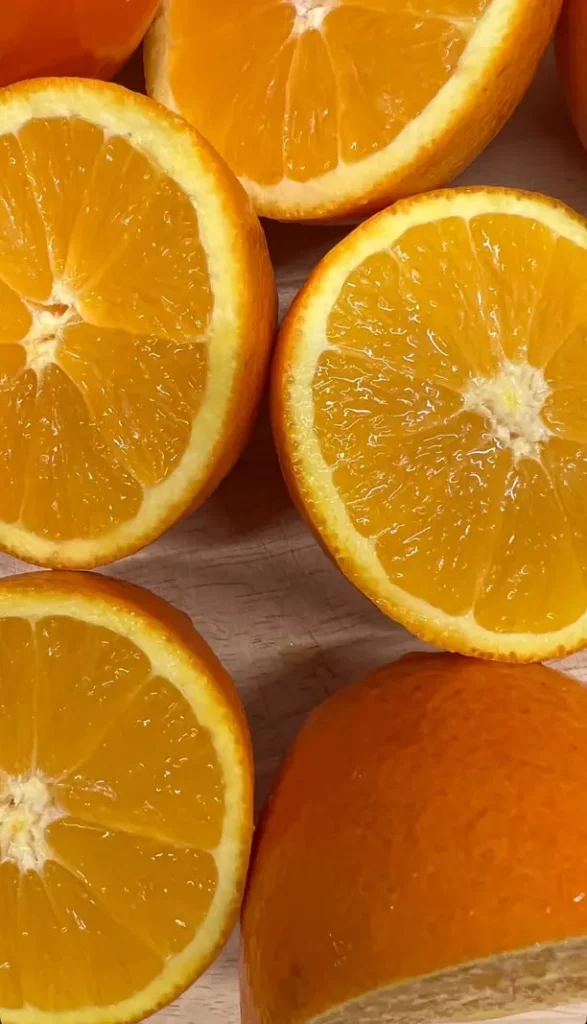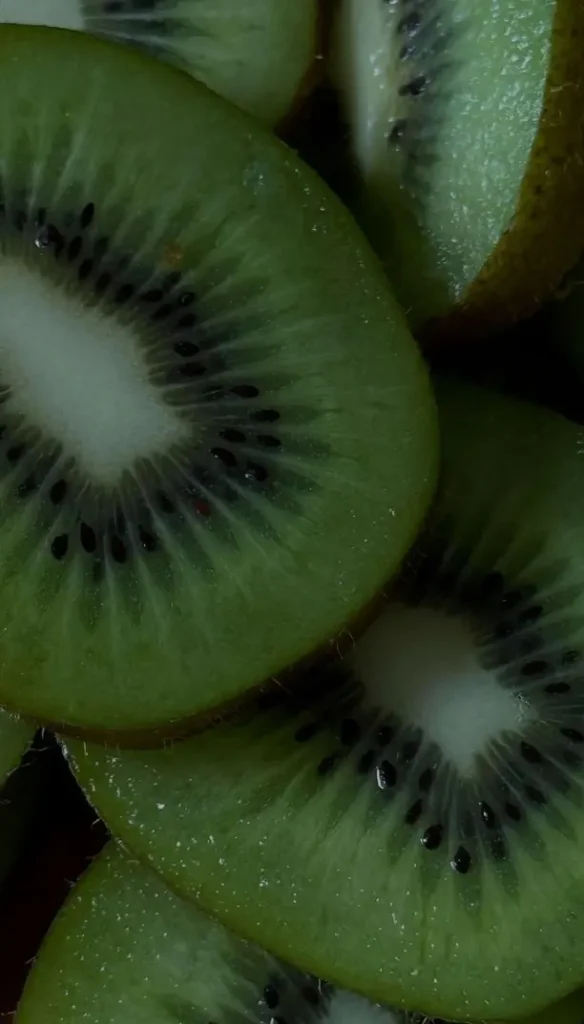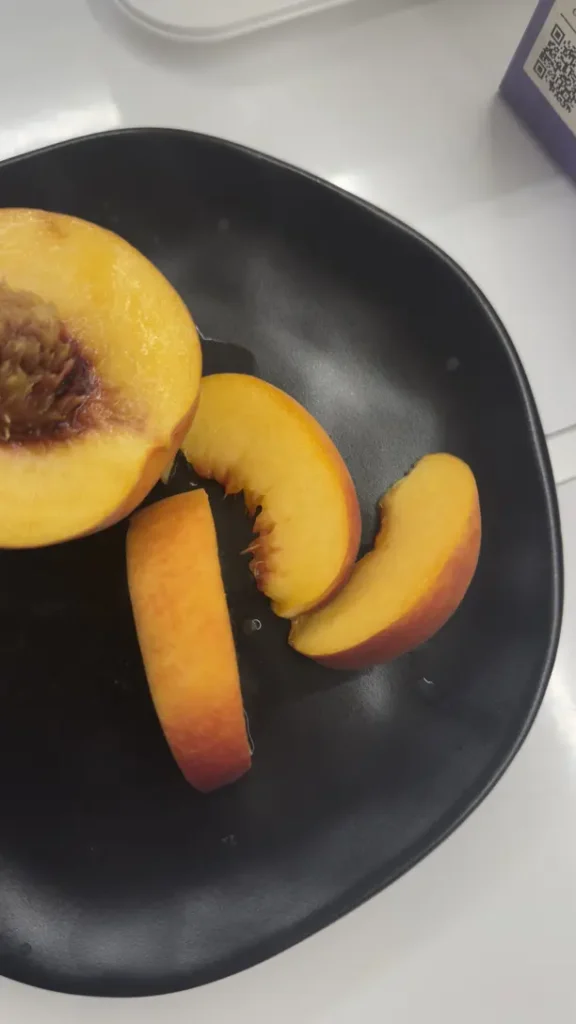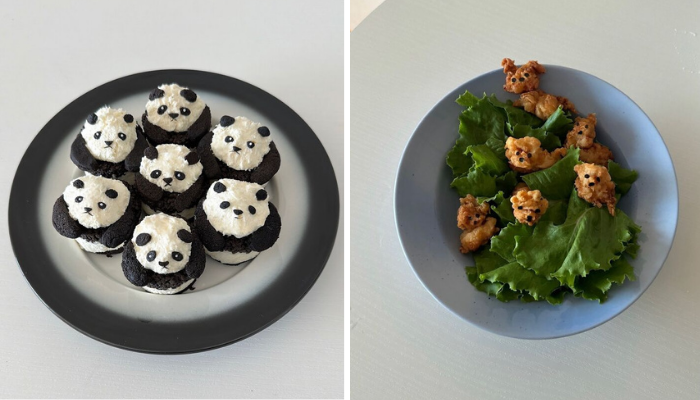10 Low-Carb Fruits That Won’t Spike Your Blood Glucose
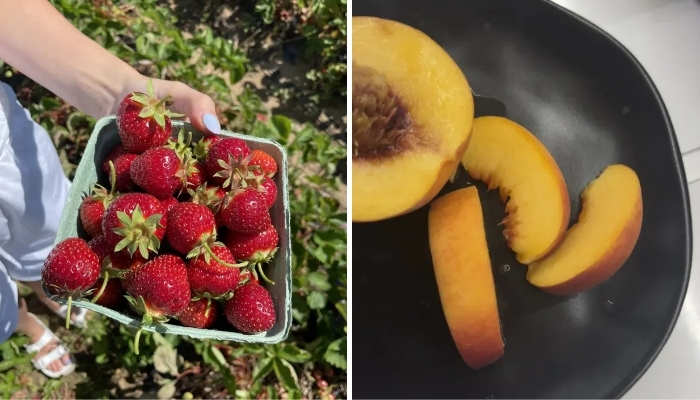

If you’re following a low-carb diet or trying to control your blood sugar levels, this list of low-glycemic fruits is exactly what you need.
Many fruits are high in natural sugars like fructose, which can quickly raise your blood glucose levels. This is especially risky if you have type 2 diabetes, insulin resistance, or are watching your carb intake for weight loss or keto diet goals.
Knowing which fruits are safe to eat without causing a blood sugar spike is crucial for your health. That’s why I’ve created this helpful list of low-carb, diabetic-friendly fruits. These fruits are not only tasty but also great for keeping your blood sugar stable.
Whether you’re managing prediabetes, on a diabetic meal plan, or just want to stay in ketosis, this list is here to guide you.
High-Glycemic Fruits To Avoid
Fruit is healthy, but many fruits are naturally high in carbohydrates and sugar. For people with diabetes, insulin resistance, or those on a low-carb or keto diet, eating the wrong fruit can cause a quick blood sugar spike. This sudden rise in glucose levels can make you feel tired, dizzy, or just plain awful—even if you were trying to eat something “healthy.”
Some fruits have a high Glycemic Index (GI), which means they raise your blood sugar fast. The biggest offenders include:
- Watermelon
- Bananas
- Mangoes
- Pineapples
- Grapes
- Melons
- Dried fruits like raisins and dates
If you’re managing type 2 diabetes, it’s important to watch your fruit portions. For example, eating a whole banana might spike your blood sugar, but half a banana may be okay. Yes, it sounds silly, but portion control really matters.
Personally, I’ve learned through trial and error that I can handle one or two small slices of watermelon—but any more than that, and my blood glucose levels go way up. Even though I love watermelon, I have to stick to small amounts to stay healthy.
Always pay attention to how your body reacts, especially if you’re trying to keep your A1C levels low or avoid insulin spikes.
10 Low-Carb Fruits That Won’t Cause Blood Sugar Spikes
Now, before you get too upset thinking you can’t eat fruit at all—here’s some good news! There are many low-carb fruits that have a low glycemic index (GI), which means they won’t cause a big spike in your blood sugar levels.
These fruits are great for people with type 2 diabetes, prediabetes, or anyone on a low-carb or keto meal plan. You can enjoy these fruits in moderation without worrying about sudden glucose spikes.
They’re packed with fiber, vitamins, and antioxidants, but they won’t overload your body with sugar. So yes—you can still enjoy fruit as part of your diabetic-friendly diet or weight loss plan.
Do This For Stable Blood Sugar
To keep your blood sugar levels stable, it’s best to eat fruits whole, not juiced or dried. Even better—pair your fruit with a handful of nuts or seeds. This helps slow down sugar absorption and keeps your glucose levels steady.
Try this: enjoy a few berries or an orange with some raw almonds, or add fruit on top of your chia seed pudding. This combo makes a perfect diabetic-friendly snack when you’re craving something sweet.
These snacks are rich in fiber, vitamin C, and vitamin E—powerful antioxidants that protect your cells from oxidative stress and support a healthy metabolism.
1. Strawberries
Strawberries are one of the best fruits you can eat if you’re on a low-carb diet or trying to control blood sugar. They’re not just tasty—they’re also low in sugar and carbs, making them perfect for people with type 2 diabetes or insulin resistance.
A 3.5 oz (100 g) serving of strawberries has:
- Only 32 calories
- 7.7 grams of carbs
- 2 grams of fiber
- 4.9 grams of natural sugar
Strawberries are rich in vitamin C and antioxidants, which help boost your immune system and protect your body from cell damage.
Enjoy them fresh as a healthy snack, or add them to your low-carb smoothie for an energy boost that won’t spike your blood glucose levels.
2. Raspberries
Raspberries may not be as popular as strawberries, but they are one of the most flavorful and healthy low-carb fruits you can enjoy. They’re perfect for people managing diabetes, insulin resistance, or anyone following a low-glycemic diet.
One cup of raspberries contains:
- Only 64 calories
- 8 grams of fiber
- 5.4 grams of sugar
Thanks to their high fiber and tannin content, raspberries help slow sugar absorption and keep your blood sugar levels stable. They’re considered a low-GI fruit, meaning they’re unlikely to cause a glucose spike.
Raspberries are in season from June to August, so be sure to add them to your healthy eating plan while they’re fresh—and freeze a few to enjoy all year long!
3. Blackberries
If you’re trying to lose weight or manage blood sugar, blackberries are a perfect fruit choice. They’re low in carbs and sugar, yet full of nutrients and fiber that support healthy digestion and long-lasting energy.
One cup of blackberries contains:
- 62 calories
- 13.8 grams of carbs
- 7 grams of natural sugar
- 7.6 grams of fiber
- Low glycemic index of 25
They also provide 30% of your daily Vitamin C and Vitamin K, making them a superfood for immune support, blood clotting, and cell health.
Blackberries are easy to enjoy—top your Greek yogurt, add to chia pudding, or snack on them fresh. They’re also known to support brain health and oral hygiene, thanks to their high antioxidant content.
4. Avocados
Although many people think of avocados as vegetables, they are actually fruits—and some of the best you can eat on a low-carb or keto diet. They’re very low in sugar (just 1.3 g per avocado) and high in fiber and healthy fats, making them ideal for weight loss, blood sugar control, and overall wellness.
One avocado gives you:
- 322 calories
- 13.5 grams of fiber (almost 50% of your daily need)
- A big dose of Vitamin B5 (pantothenic acid) for energy metabolism
Avocados are great for gut health, thanks to their fiber, and their mix of vitamins, minerals, and monounsaturated fats helps reduce the risk of heart disease and inflammation.
They’re super versatile and taste amazing in both sweet and savory dishes. Add avocados to salads, smoothies, keto desserts, or enjoy them in a creamy chocolate mousse—they’re a must-have in any healthy diet.
5. Lemons
Lemons are very low in calories—just 17 calories per fruit—and high in vitamin C, making them a great choice for people on a weight loss diet or managing blood sugar levels.
Each lemon contains:
- 5.4 grams of carbs
- Only 1.5 grams of natural sugar
Lemon juice is known for its antibacterial and antifungal properties. Plus, the citric acid in lemons may help prevent kidney stones, making them a powerful and natural way to support urinary tract health.
Add lemon slices to your water, use the juice in salad dressings, or include it in your daily detox routine—this fruit is as healthy as it is flavorful!
6. Grapefruits
Grapefruit is a citrus fruit that’s not only rich in vitamin C but also a great choice for those on a low-carb or diabetic-friendly diet. One medium grapefruit provides 100% of your daily vitamin C needs, while being low in both sugar and calories.
For example, 1/2 medium grapefruit contains:
- Only 41 calories
- 10.3 grams of carbs
- 8.9 grams of sugars
- 1.4 grams of fiber
With a low glycemic index of 25, grapefruit helps prevent blood sugar spikes and is suitable for those managing type 2 diabetes or trying to lose weight.
Grapefruit’s slightly bitter taste comes from a compound called naringin, which has its own health benefits. Plus, it’s super easy to enjoy: simply slice it up for a quick snack, or add it to your smoothie or salad for a refreshing twist!
7. Oranges
Oranges are one of the most popular and delicious fruits out there! While they’re not low-carb (with about 15 grams of carbs per orange) or low-sugar (about 12.2 grams of sugar), they do have a low glycemic index of 30-50, which means they won’t cause a sharp spike in blood sugar.
Each orange provides:
- 3.1 grams of fiber (about 11% of your daily fiber needs)
- A healthy dose of vitamin C, which helps support your immune system
- Essential B vitamins, potassium, and calcium
Although oranges have a higher glycemic index compared to grapefruits (around 35), they are still considered a low-GI fruit, making them a good option for people managing diabetes or looking to maintain balanced blood sugar.
So, whether you enjoy them fresh or add them to smoothies and salads, make sure to include these sweet and juicy fruits in your healthy diet!
8. Kiwifruits
When you’re looking for low-carb fruits, don’t forget about kiwifruit. This small, flavorful fruit is full of nutrients and low in sugar, making it a great choice for anyone trying to manage their blood sugar levels or follow a low-carb diet.
One medium kiwi provides:
- 70% of your daily Vitamin C
- Only 42 calories
- 2.1 grams of fiber
- 10.1 grams of carbs
- 6.2 grams of sugars
Regularly eating kiwis can help lower bad cholesterol and triglycerides, supporting your heart health and maintaining healthy blood pressure.
Kiwis are rich in both soluble and insoluble fiber. Soluble fiber helps with blood sugar control, while insoluble fiber supports digestive health and regular bowel movements.
Enjoy kiwis on their own or add them to fruit salads, smoothie bowls, or even sauces for a sweet, tangy kick.
9. Peaches
When peaches are in season (from July to August), make sure to add them to your diet. These juicy, delicious fruits not only taste amazing but also have a low glycemic index (GI) of 42, which means they won’t cause a spike in blood sugar.
One medium peach contains:
- 80 calories
- 17.5 grams of carbs
- 2.6 grams of fiber
- 14.5 grams of sugar
Peaches are nutrient-packed and can help with digestion, support skin health, and even boost your immune system. They may also help reduce allergy symptoms, making them a great addition to any healthy diet.
Enjoy peaches in moderation, either fresh, in smoothies, or as a topping for fruit salads.
10. Tomatoes
Tomatoes are another low-carb fruit we often treat like a vegetable. They are low in sugars (just 3.2 grams per tomato) and calories (only 22 calories per tomato), making them a great choice for anyone following a low-carb or diabetic-friendly diet. Each tomato also provides 1.5 grams of fiber, mostly insoluble, which is great for digestion.
Tomatoes are packed with lycopene, a powerful antioxidant that gives them their red color. Lycopene is known for its many health benefits, including reducing the risk of heart disease and certain types of cancer. Plus, tomatoes are good for your skin, helping to protect it from damage.
Though tomatoes are available year-round, they are at their best during the summer months. So, try to enjoy them fresh while they’re in season to get the most out of their flavor and health benefits.







